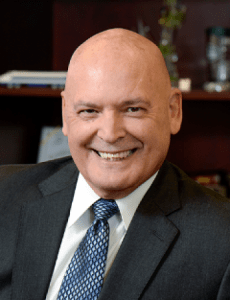Serotonin syndrome: is it a reason to avoid the use of tramadol with antidepressants?
Journal of Pharmacy Practice
Susie H. Park, Glen Lewis Stimmel
2014
There is a warning associated with all serotonergic antidepressants and its concomitant use with tramadol due to the concern for a drug-drug interaction resulting in serotonin syndrome (SS). The prescribing of antidepressants with tramadol may be unnecessarily restricted due to fear of causing this syndrome.
Read More
Sexual dysfunction in women with epilepsy: role of antiepileptic drugs and psychotropic medications
International Review of Neurobiology
Glen Lewis Stimmel
2008
Sexual dysfunction is a frequently encountered comorbid disorder in patients with neurological and psychiatric disorders. Importantly, sexual dysfunction can also occur as a treatment emergent adverse effect of a number of commonly used psychotropic and antiepileptic medications, and can include decreased libido, erectile dysfunction, disordered arousal, delayed orgasm, and anorgasmia. These effects can occur in both men and women, and can be seen across age groups.
Read More
Counseling patients about sexual issues.
Pharmacotherapy
Stimmel GL, Gutierrez MA.
2006
In recent years, the frequency of antidepressant drug-induced sexual dysfunction has increased, along with the use of new drugs for the treatment of erectile dysfunction and premature ejaculation. It has thus become common for pharmacists to counsel patients about sexual issues. Pharmacists must not only become knowledgeable about these drugs and their indications, but they must also become skilled and comfortable with counseling patients and answering questions from both patients and other health care providers. In addition to therapeutic information, pharmacists' discussions with patients should take into account factors that contribute to treatment nonadherence and treatment failure. Patient education is essential to ensure optimum outcomes for pharmacologic treatments for both erectile dysfunction and premature ejaculation. Improper use of phosphodiesterase-5 inhibitor drugs for erectile dysfunction accounts for most nonresponsiveness and discontinuation of treatment. Drug-induced sexual dysfunction is common with some psychotropic drugs. Up to 50% of men will experience delayed ejaculation, and at least 30% of men and women will experience anorgasmia from antidepressant drugs with serotonin agonist activity. Trazodone is the drug most commonly associated with the rare but very serious adverse effect of priapism. The pharmacist who is both competent and comfortable discussing sexual function and dysfunction with patients can make positive contributions to their therapeutic outcomes as well as their quality of life.
Read More
Pharmacologic treatment strategies for sexual dysfunction in patients with epilepsy and depression.
CNS Spectr
Stimmel GL, Gutierrez MA
2006
Sexual dysfunction is a frequently encountered comorbid condition in patients with many medical and psychiatric conditions, such as epilepsy and depression. Most depressed patients experience some type of sexual dysfunction, decreased sexual desire being the most common. The association of sexual dysfunction with epilepsy is less clear. Changes in sex hormone levels are common in patients with epilepsy and may be attributable to the disease or to antiepileptic drugs (AEDs). Sexual dysfunction associated with depression or epilepsy is generally treated according to standard guidelines for the management of sexual disorders, since data from special populations are not available. The most common forms of female sexual dysfunction are lack of sexual desire and difficulty achieving orgasm. There are no approved pharmacotherapies for female hypoactive sexual desire disorder or female orgasmic disorder. Female sexual arousal disorder is treated with estrogen replacement therapy when indicated or vaginal lubricants. The most common male sexual dysfunction disorders are premature ejaculation and erectile dysfunction. Phosphodiesterase type-5 inhibitor drugs are now the first-line treatment for erectile dysfunction, and selective serotonin reuptake inhibitors and topical anesthetic creams are nonapproved but effective treatments for premature ejaculation. Testosterone and aromatase inhibitors have been used investigationally to treat sexual dysfunction in men taking AEDs. Patient education and follow-up appointments are essential to ensure optimal outcomes of pharmacologic treatments for sexual dysfunction.
Read More
Sexual dysfunction and psychotropic medications.
CNS Spectr
Stimmel GL, Gutierrez MA
2006
Psychotropic drugs are often associated with sexual dysfunction. The frequency of antidepressant-associated sexual dysfunction is greatly underestimated in clinical trials that rely on patient self-report of these adverse events. Direct inquiry reveals that delayed orgasm/ejaculation occurs in >50% and anorgasmia in at least one third of patients given selective serotonin reuptake inhibitors. Antidepressant-induced sexual dysfunction can be successfully managed. A different antidepressant without significant sexual effects, such as bupropion or mirtazapine, can often be substituted. Other strategies involve drug holidays or adjunctive therapy with drugs such as sildenafil. Dopamine antagonist antipsychotic drugs are most commonly associated with decreased libido. The newer atypical antipsychotics, with less effect on dopamine, are less commonly associated with sexual dysfunction. Sexual dysfunction is commonly reported with seizure disorders, and many anticonvulsant drugs affect levels of sex hormones. Because sexual dysfunction can be related to many factors, care must be taken to establish the patient's baseline sexual functioning before the initiation of psychotropic drug therapy and to rule out other etiologies before drugs are implicated as causative.
Read More


